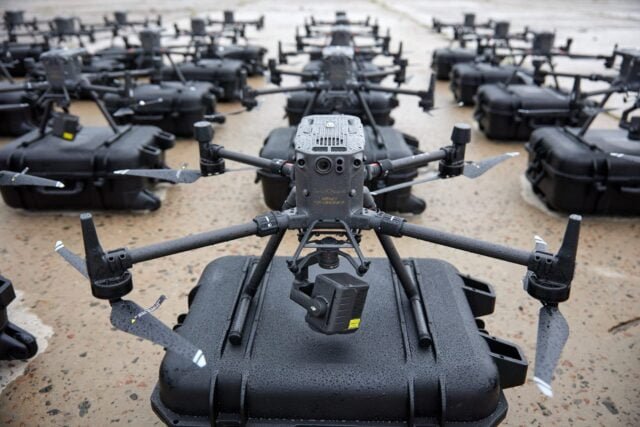
As the war between Ukraine and Russia rages on, both nations are increasingly turning to artificial intelligence (AI) to gain a strategic edge on the battlefield. This ongoing conflict is not only a physical confrontation but also a technological race, with AI playing a pivotal role in shaping modern warfare tactics and strategies.
Ukraine’s Innovative Use of AI
Ukraine has been at the forefront of integrating AI into its military strategy to counteract the numerical and firepower superiority of Russian forces. The country’s approach to warfare is evolving into a positional battle, where technological advancements are leveraged to create significant advantages. AI, a staple in many Western defense arsenals, is now a focal point for Ukraine, showing its potential to transform the nature of warfare.
The Brave1 defense cluster in Ukraine exemplifies the country’s commitment to advancing defense technologies. It supports the development of AI in military applications by funding startups that focus on mission-support and operational AI. This includes systems that enhance weapon efficiency and develop autonomous capabilities.
One of the standout innovations is the Saker Scout Unmanned Aerial Vehicle (UAV), which utilizes advanced AI to identify and engage targets with minimal human intervention. This system represents a leap in military technology, allowing for quick reconnaissance and precise strikes, even in environments where electronic countermeasures are prevalent.
Russia’s Response and the Global AI Arms Race
Russia is not lagging in the technological race, as it develops its own AI-driven battlefield drones to counter Ukraine’s strategies. This situation underscores the broader trend of an escalating AI arms race, where the effectiveness of future conflicts may increasingly depend on advancements in AI and autonomous weaponry.
Critics, including Geoffrey Hinton, a pioneer in AI, express concern over the ethical implications of this trend. The commercialization and use of lethal AI-driven drones in combat raise questions about the future of warfare and the need for stringent regulations to prevent misuse and ensure that advancements in AI contribute to peace rather than escalating conflicts.
The Broader Implications of AI in Warfare
The Russia-Ukraine conflict is proving to be a significant testing ground for AI technology in warfare. From intelligence gathering and analysis using AI systems to process vast amounts of data from various sources, to the deployment of AI-enhanced weapons and surveillance systems, this war is showcasing the potential and challenges of integrating AI into military operations.
AI’s application in warfare extends beyond the battlefield. It encompasses data analytics, logistics, planning, and even cyber warfare, where AI-enhanced defenses and the spread of misinformation play critical roles. The use of AI in these areas highlights its dual-use nature, offering both strategic advantages and new vulnerabilities.
As the conflict continues, the lessons learned from the use of AI in Ukraine will likely influence global military strategies and defense planning. The war underscores the necessity of innovation and technological superiority in modern conflicts, setting a precedent for the role of AI in future warfare.
This unfolding situation presents a complex picture of how AI is reshaping the nature of conflicts, highlighting the need for a balance between technological advancement and ethical considerations to ensure that such capabilities are used responsibly and for the greater good.








